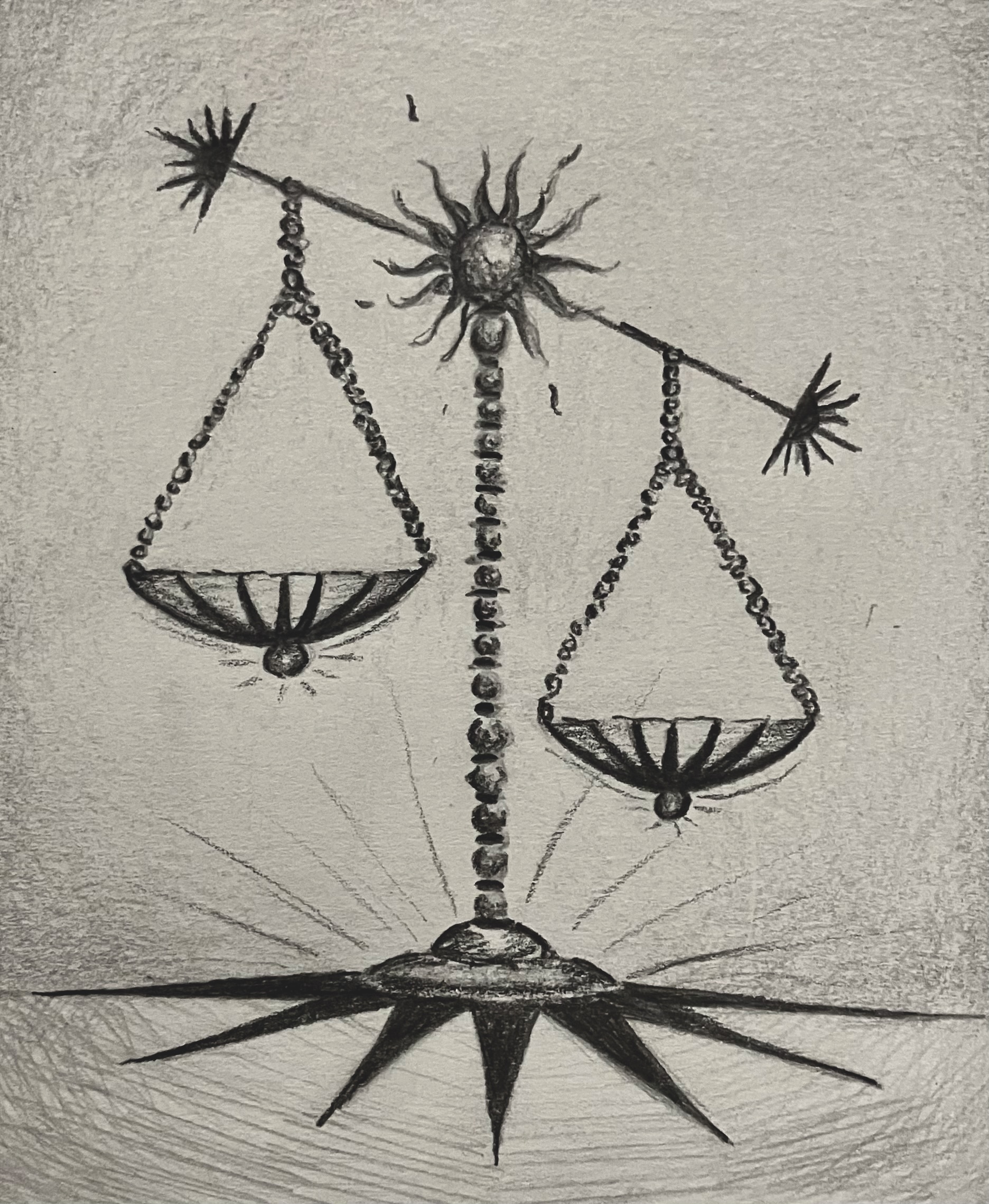The cost of goodness
October 18, 2024
 Juliet McDermott
Juliet McDermottAll my life, one question has remained in the forefront of my mind: Am I a good person?
The question has become such an integral part of who I am—it seeps into everything I set my eyes on and every action I take. I walk down the street, waving at people as I pass, and I wonder, “Am I a good person?” I’m arguing with a friend on the phone and I keep thinking, “Am I a good person?” I rush 30 minutes late into a midterm in a frantic frenzy (yes, this actually happened) and I think, am I a good person? Even as I wash the dishes, my mind wanders to the thought of, “Am I a good person?”
I’ve worried and grated over this question of goodness so much that it’s had detrimental effects on my personal happiness. In the pursuit of being a “good person,” I’ve prioritized others’ well-being over my own. I’ve given all of my mental bandwidth to causes and objectives aimed at helping those who are in need. I’ve given much of myself away, both physically and emotionally, to help others in any way I could.
This obsession with goodness has taken bits and pieces of my very being. I was overtaken. I’d let this question—this pursuit of being good—take control of every facet of my life to the point that it hurt me. Still, I refused to change. I thought that this was the price of being a good person—that you don’t get an award for being good—you do it despite its costs. I stayed this way for a long time.
I gave so much goodness to everyone else that I had none left for myself.
I lived my life with this ideal, this overarching goal of being a good person, so much so that I saw myself as a martyr in my own life, a Job-like figure, one who must suffer endlessly, but stay faithful to his beliefs—his cause. I took solace in characters like Daredevil and Spider-Man, embodiments of goodness, symbols of virtue and justice, who give everything to the world despite the immense pain they are subjected to.
This way of moving through life went on for a long time. I continued to be self-sacrificing, to be what I thought was morally good. This wasn’t sustainable. It couldn’t go on forever. There was a limit to how long I could last, giving all of myself away to everyone until I had nothing left.
I gradually reached that point: I started getting irritated easily day by day, spent less time around those I loved and began unintentionally hurting those around me in the continued pursuit of “being good.” I was so lost in my efforts to be “good” that I made many bad decisions that had an impact on both myself and my loved ones.
If you’ve consumed any Spider-Man comics or Daredevil media, you probably see where this is going. This breaking point is explored a lot in superhero media: The character striving to be “good,” whatever their definition of that is, loses everything in that pursuit and it breaks them. One of my all-time favorite examples of this is in the transition from season two to season three in the TV show “Daredevil.”
In this season, we see Matt Murdock (Daredevil) attempt to come back from losing everything. He sacrificed everything he had in his pursuit of saving his city, doing what he thought was his duty, his “good.” On the way, he loses his best friends, loses his job and hurts himself both physically and emotionally. His entire life is gone. We see the price he pays for it all. It isn’t worth it; his lifestyle isn’t sustainable. He ends up hurting those closest to him in a misguided effort to “protect them” and to “do the right thing.”
Watching this unfold on screen was one of the most sobering moments of my life, so much so that I rewatched it unfold multiple times. I started understanding why so many people in my life urged me to be “less nice.” They didn’t mean for me to limit my kindness or change the way I treat those around me, but instead to look out for myself. I had to prioritize survival, to care for those worth caring for while retaining enough mental bandwidth to be able to actually be a good person.
My goal of being “a good person” hasn’t changed, but every day I try to preserve a little bit of goodness just for myself. I’m actively working on keeping the question of goodness from consuming me. I’m trying to save enough of it to be happy with who I am as a person as I maintain relationships with the people who care about me.
By no means have I completely embodied this advice, but I’m trying. Good begets good—have some for yourself and you’ll be able to keep on giving it to others.

Comments
Before submitting a comment, please review our comment policy. Some key points from the policy: